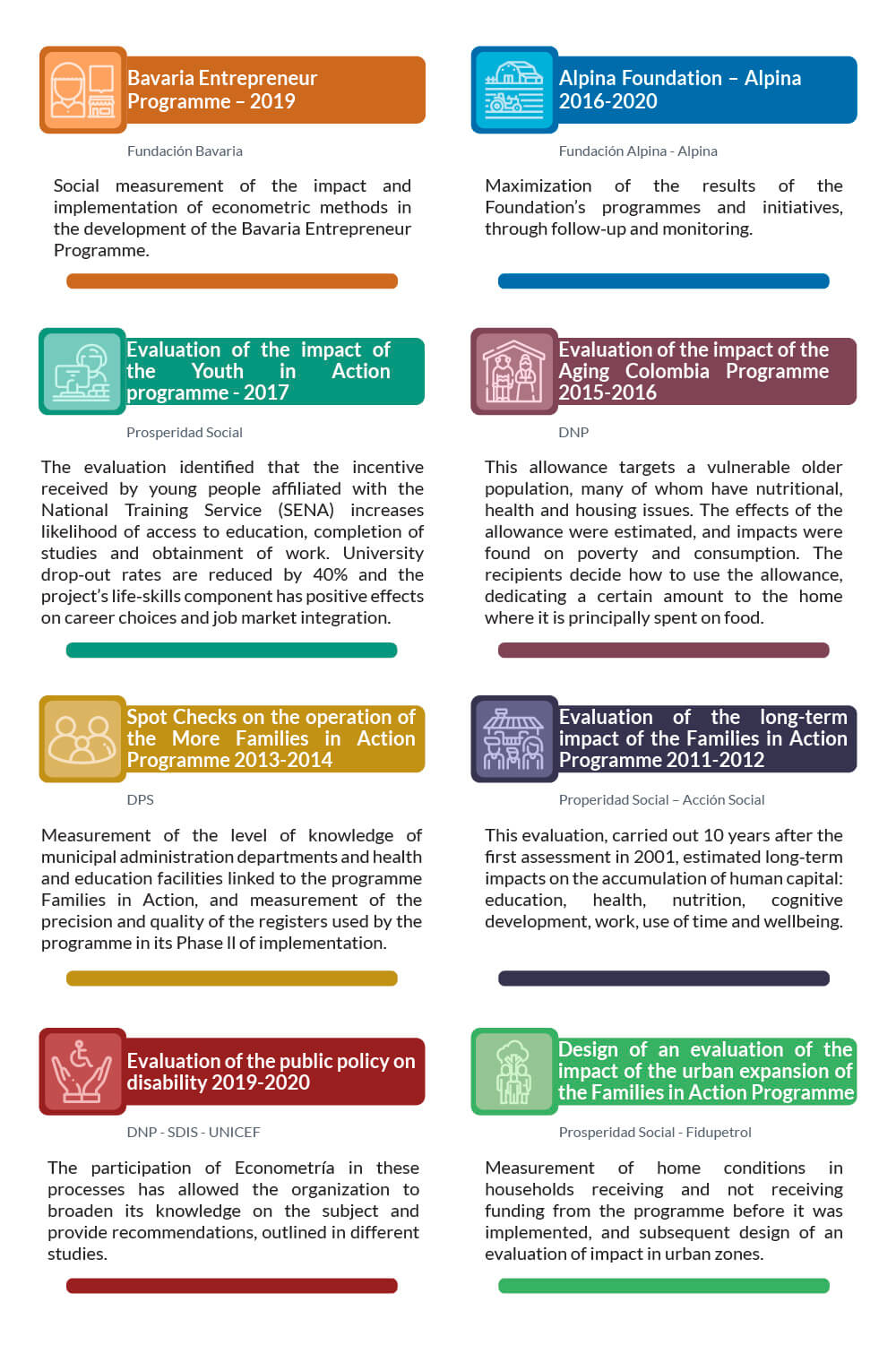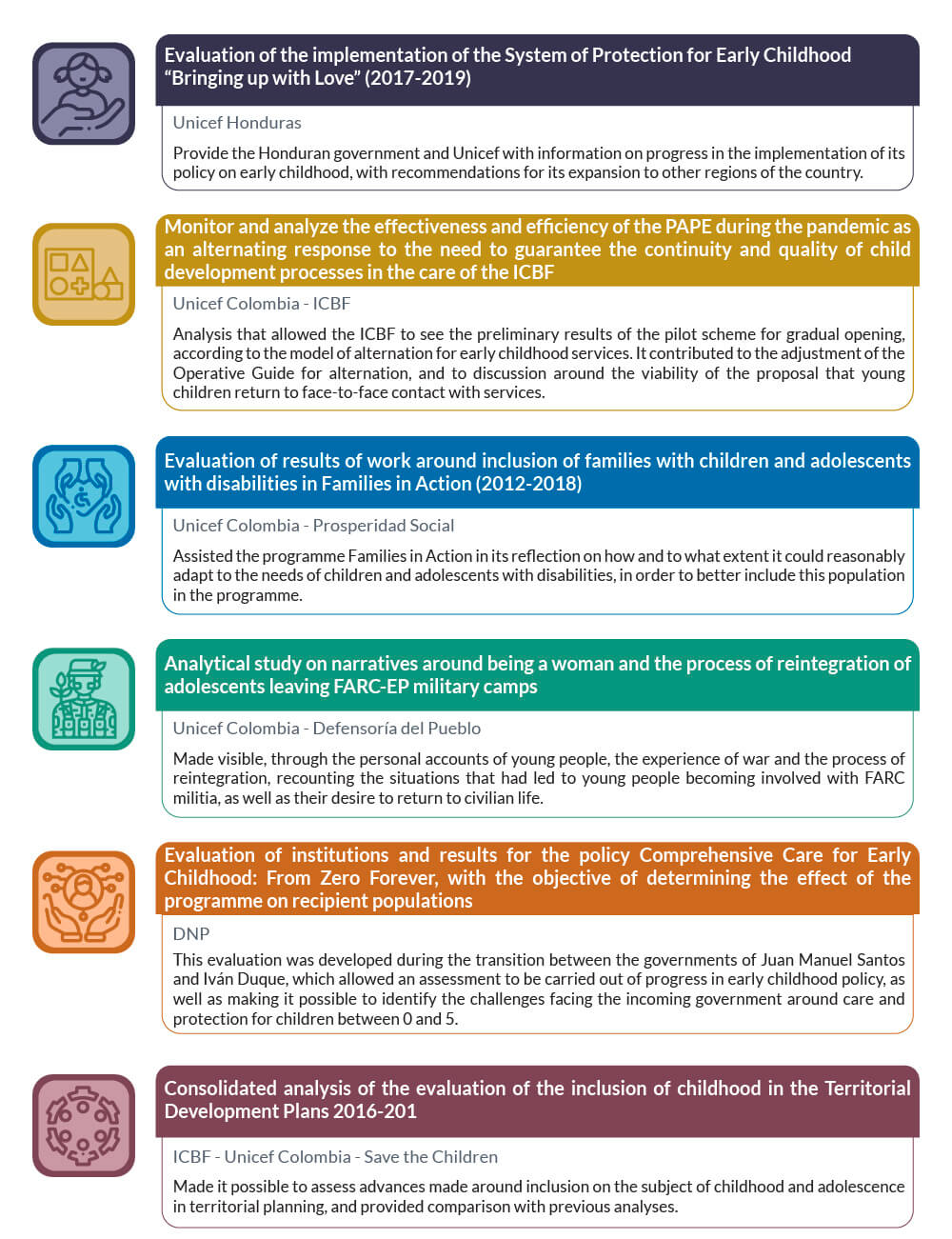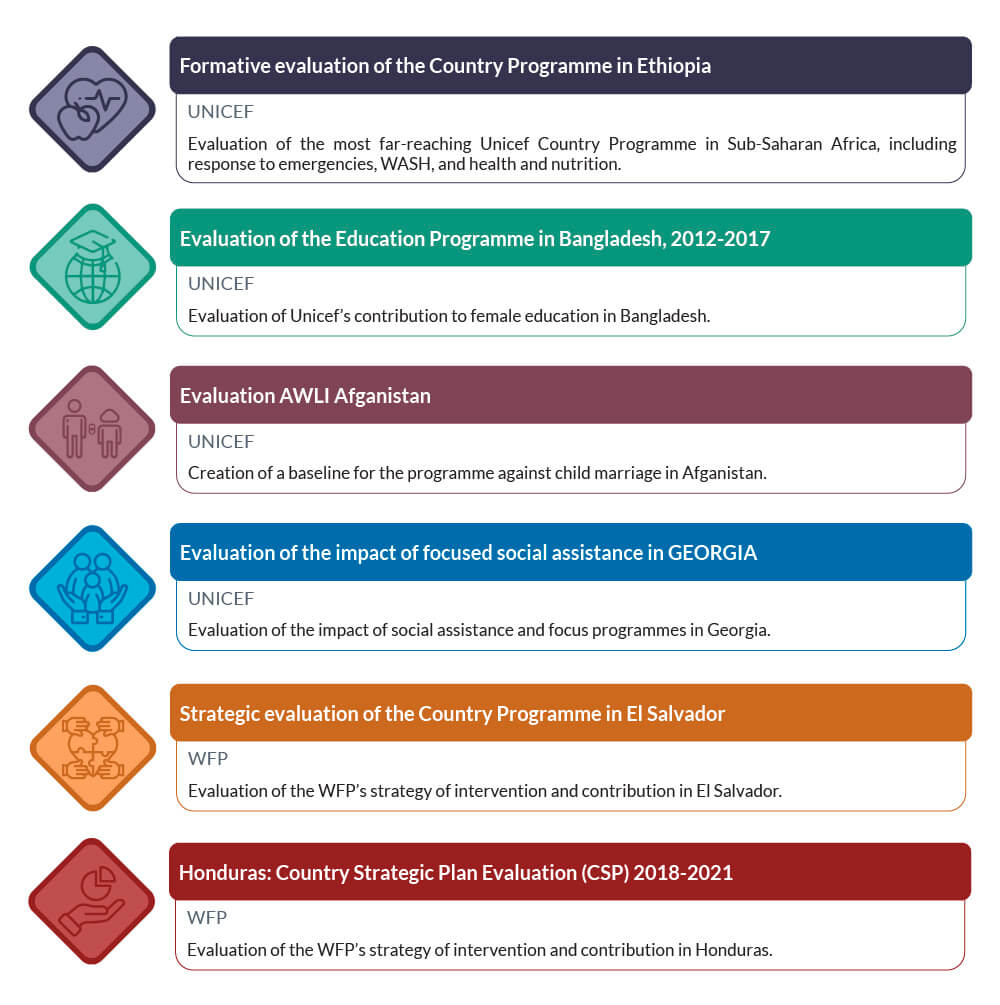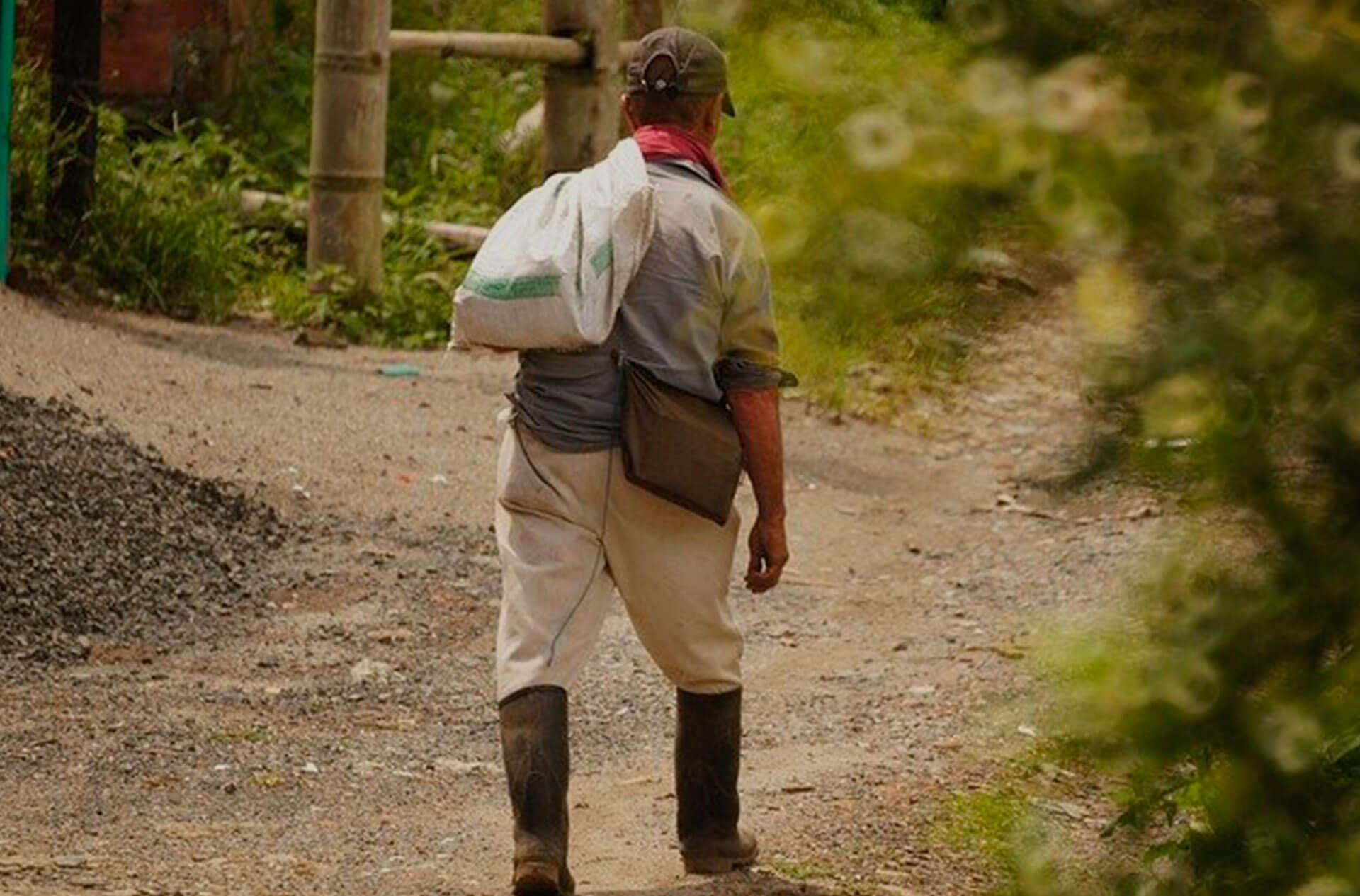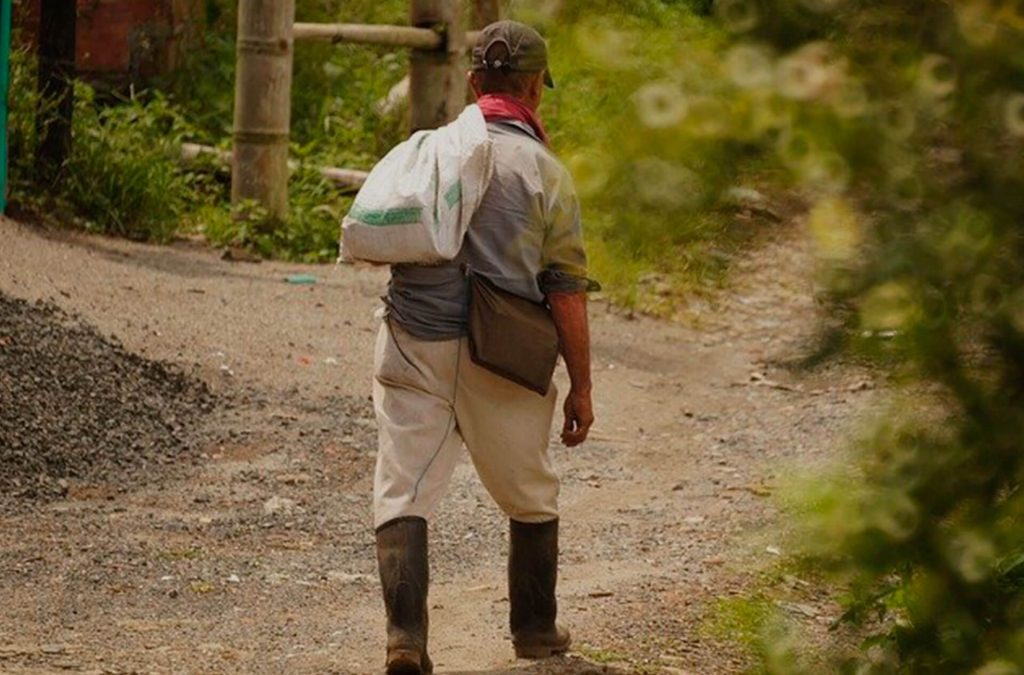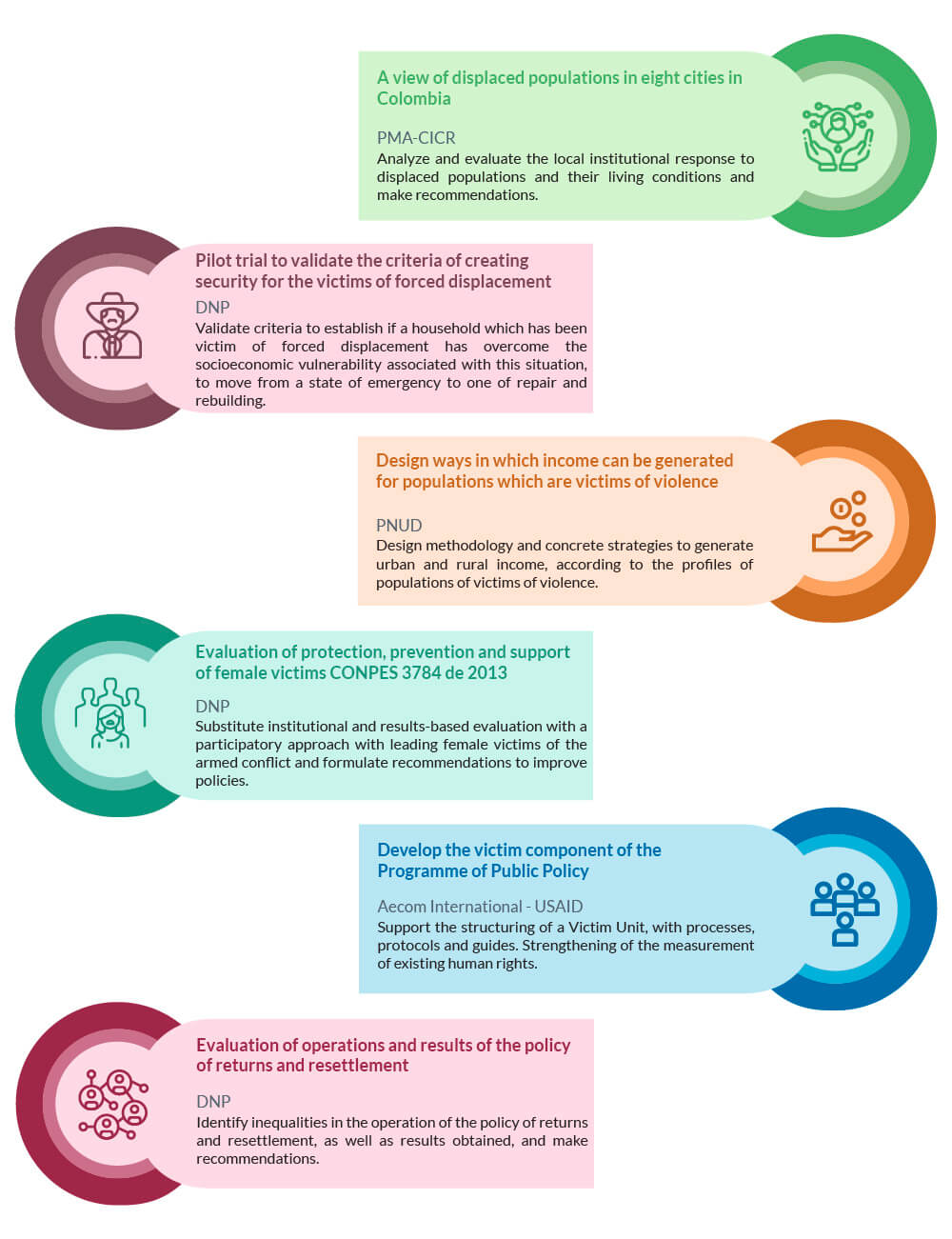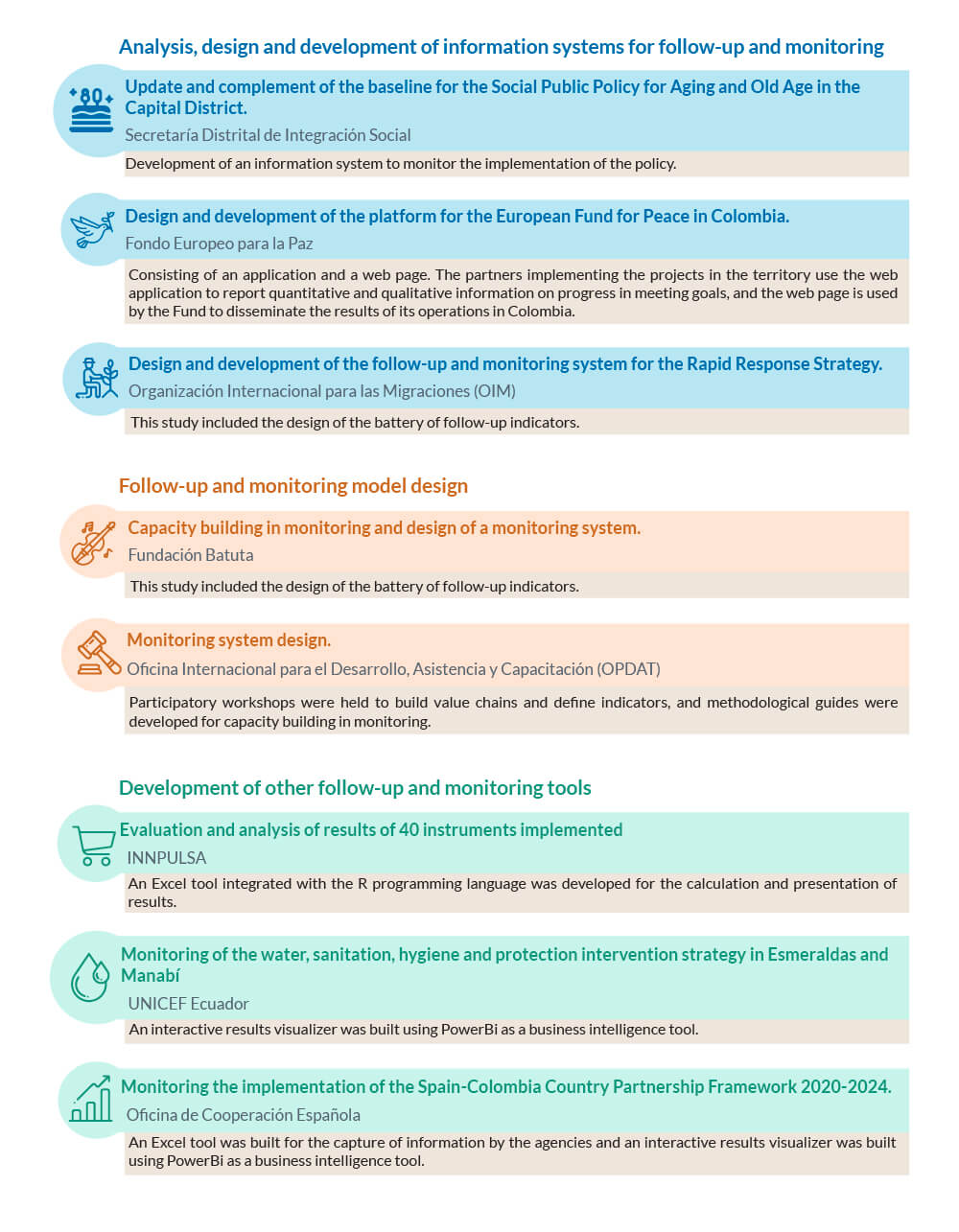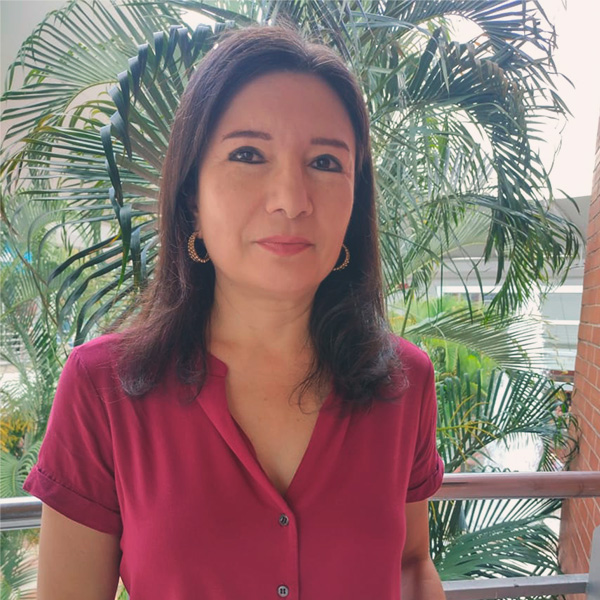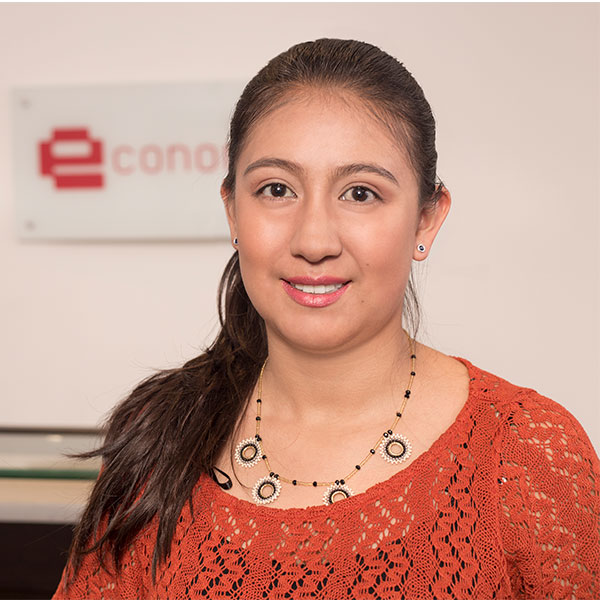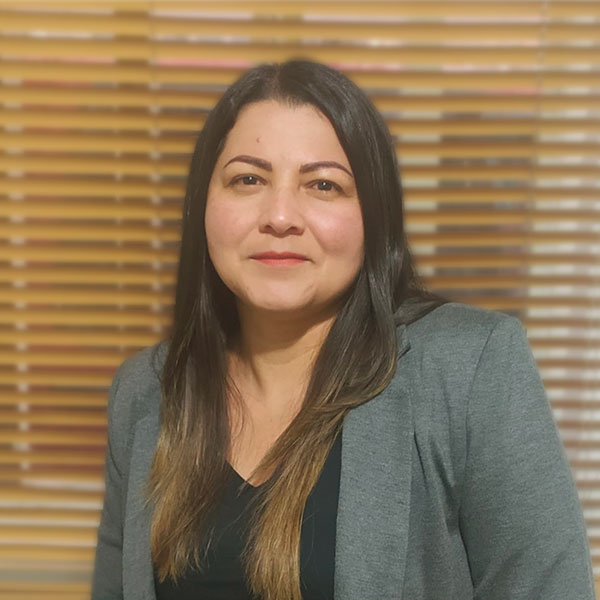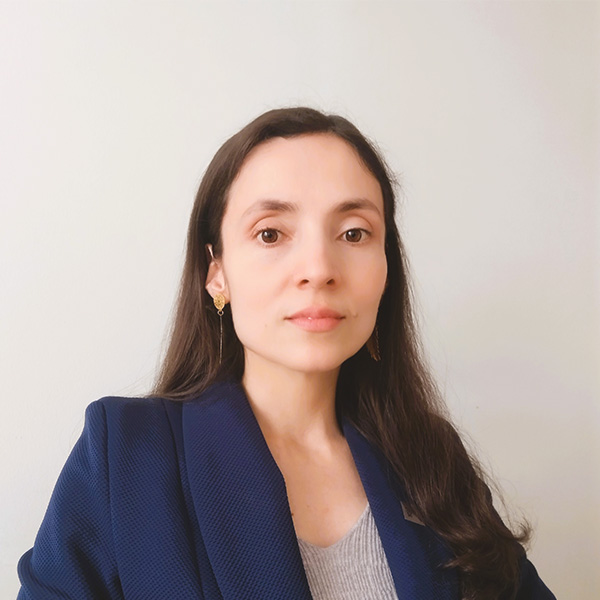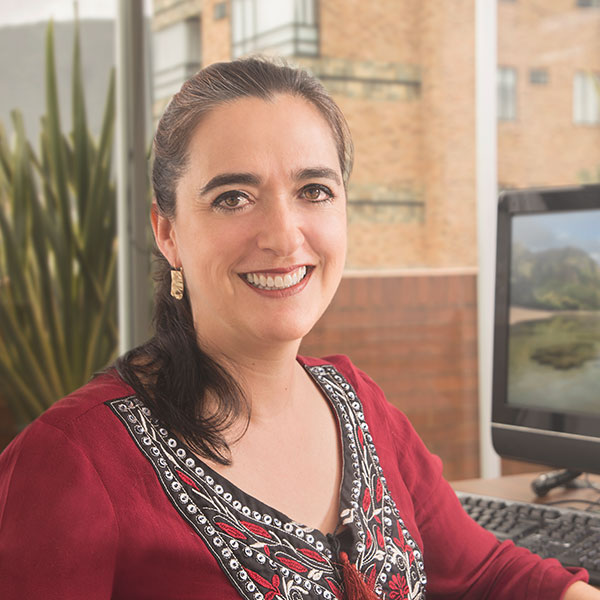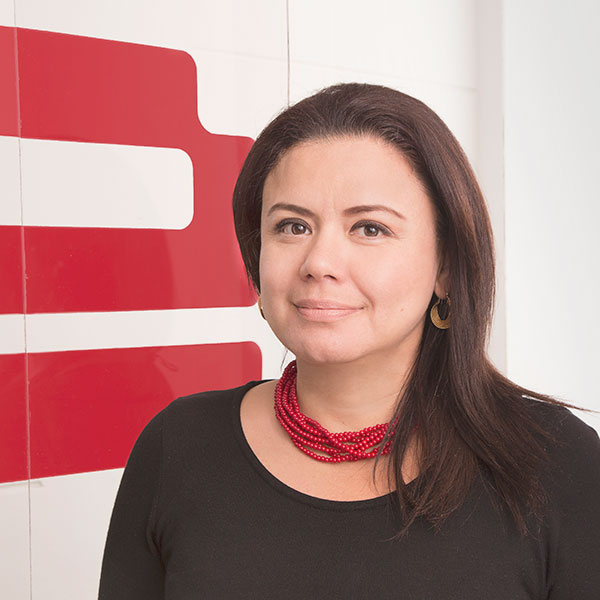
Consulting services in monitoring&E of policies, programs and projects.
Consulting in M&E of policies, programs and projects.
At Econometría S.A., we offer consulting services in M&E of policies, programs and projects for public and private entities, international cooperation agencies and non-governmental organizations, which seek to measure their effectiveness to identify whether they are achieving their expected results or impacts, and thus make timely decisions that allow them to achieve their objectives.
If you are looking for s information-based decision making solutions.
Importance of M&E
M&E applied to policies, programs and projects is a fundamental tool for the success of any initiative because it allows for identifying early flag-ups, generate evidence for strategic decision-making, analyze the cost-effectiveness of interventions and plan strategies for improvement. At Econometría S.A., we offer M&E consulting services that allow our clients to make informed decisions and improve their interventions and operations.
Benefits of hiring a M&E consultancy
Hiring an M&E can generate multiple benefits, such as increased effectiveness and efficiency in the use of resources, improved decision making, and transparency and truthfulness in accountability processes.
In addition, an external consultancy can provide an objective and impartial view, which can be of great value in identifying areas for improvement.
Why choose Econometría for M&E consulting?
At Econometría S.A., we have a team of experts in the design and implementation of M&E strategies that adapt to the specific needs of each client.
Our services range from the analysis of the theory of change, the identification of the value chain or logical framework, the construction of baselines, the definition of indicators and dashboards, to the design and development of software tools that facilitate the implementation of the M&E models we develop.
In addition, we offer innovative and state-of-the-art methodologies and tools that allow an effective implementation of the data collection, processing and visualization as well as the analysis of outputs, outcomes, impacts and findings.
We work closely and collaboratively with our clients to ensure that the services offered are tailored to their specific needs and objectives.
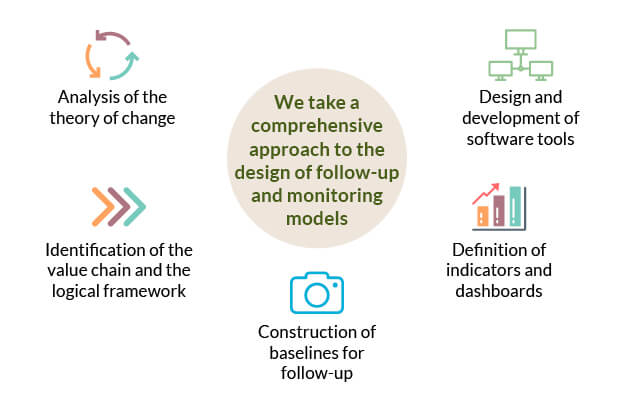
Experience and successful projects in M&E consultancy
At Econometría S.A, we have extensive experience in consulting in M&E of policies, programs and projects, having worked with various public and private sector entities. Some of our projects are:
- Updating and complementing the baseline of the Social Public Policy for Aging and Old Age in Bogotá, commissioned by the District Secretariat of Social Integration.
- Development of an information system for monitoring the implementation of projects, commissioned by the European Fund for Peace in Colombia.
- Design and development of the M&E system for the Rapid Response Strategy for the International Organization for Migration (IOM).
- Capacity building in M&E for a monitoring system, commissioned by Fundación Batuta.
- Data collection and systematization for the Bariatric and Metabolic Surgery Centers, commissioned by J&J Colombia.
Our team of experts in follow-up and monitoring
At Econometría S.A., we have a team of highly trained professionals in areas such as economics, statistics, political and social sciences, fieldwork information systems. It is a team with extensive experience in the design of M&E models.

Carolina Suárez
Technical Manager – Director of Projects

Martha Isabel Gutiérrez
Director of Projects

Adriana Cardenas
Director of Projects
Request more information.
At Econometría S.A., we make sure to understand the specific needs and objectives of each client to design a M&E model that fits their needs. This has allowed us to offer customized and effective solutions that have helped our clients make better decisions and achieve their goals.
Contact us now and find out how we can help you improve your interventions and make informed decisions.
Other related results
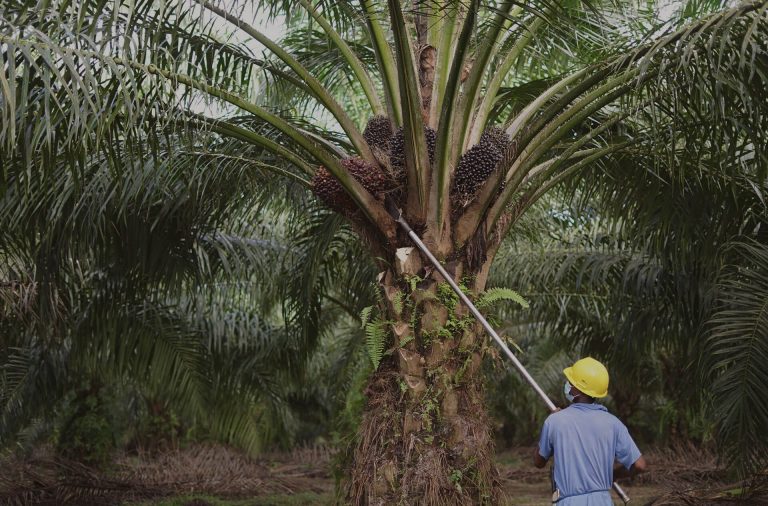
Study to identify and collect forced labor indicators

Consulting services in monitoring&E of policies, programs and projects.
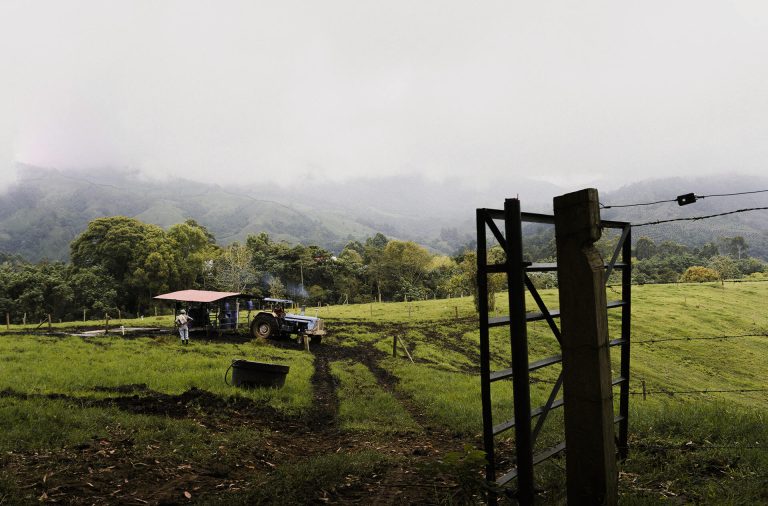
NGO Evaluations
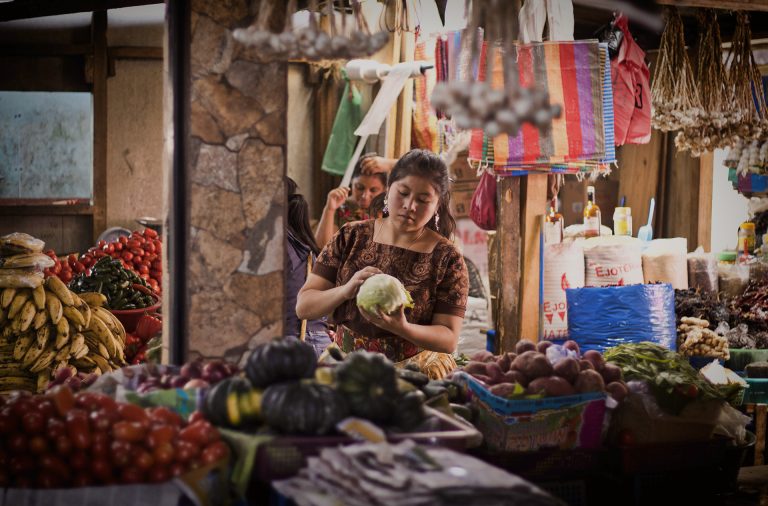
Evaluation for WFP
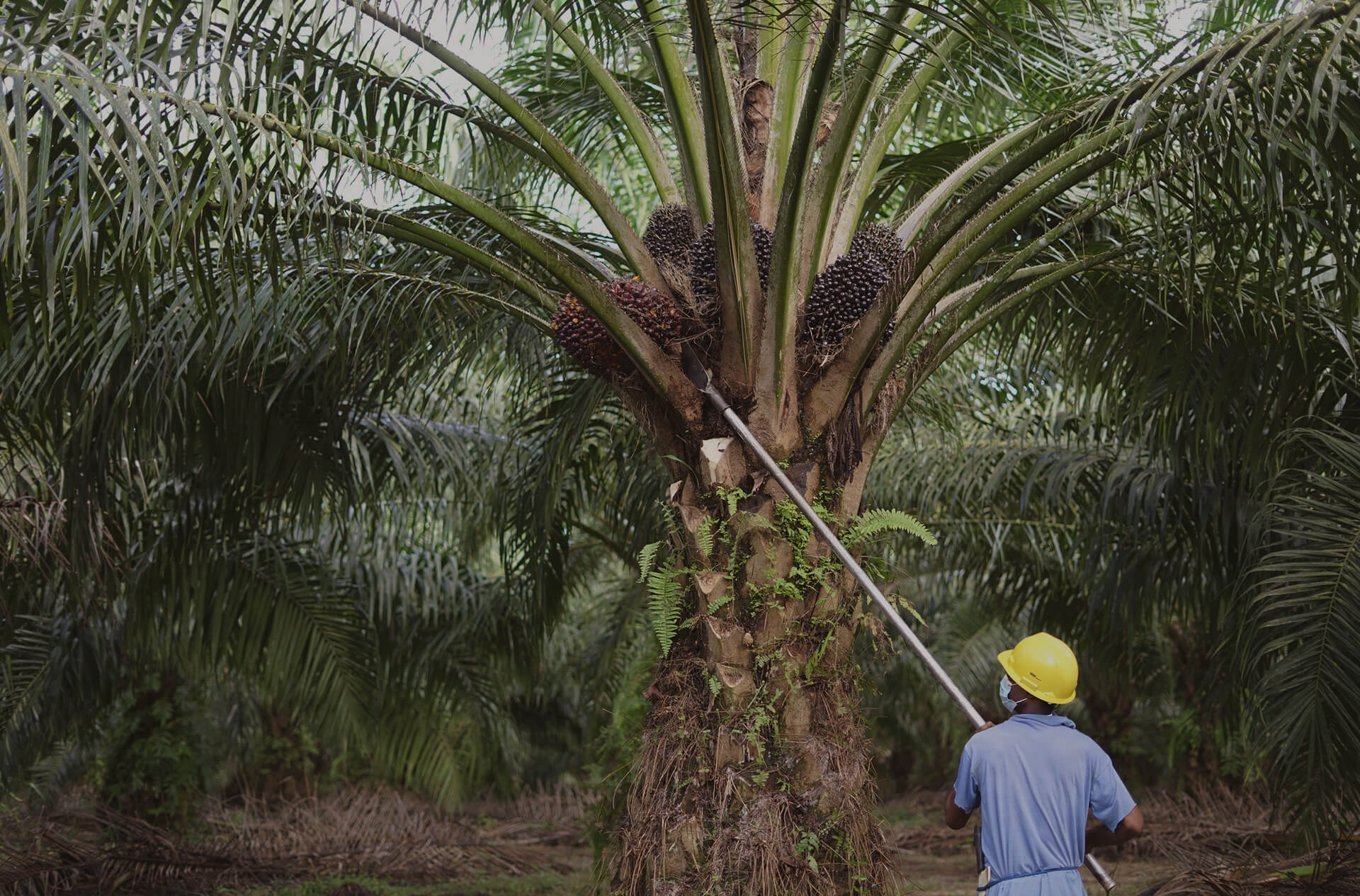
Study to identify and collect forced labor indicators

Consulting services in monitoring&E of policies, programs and projects.
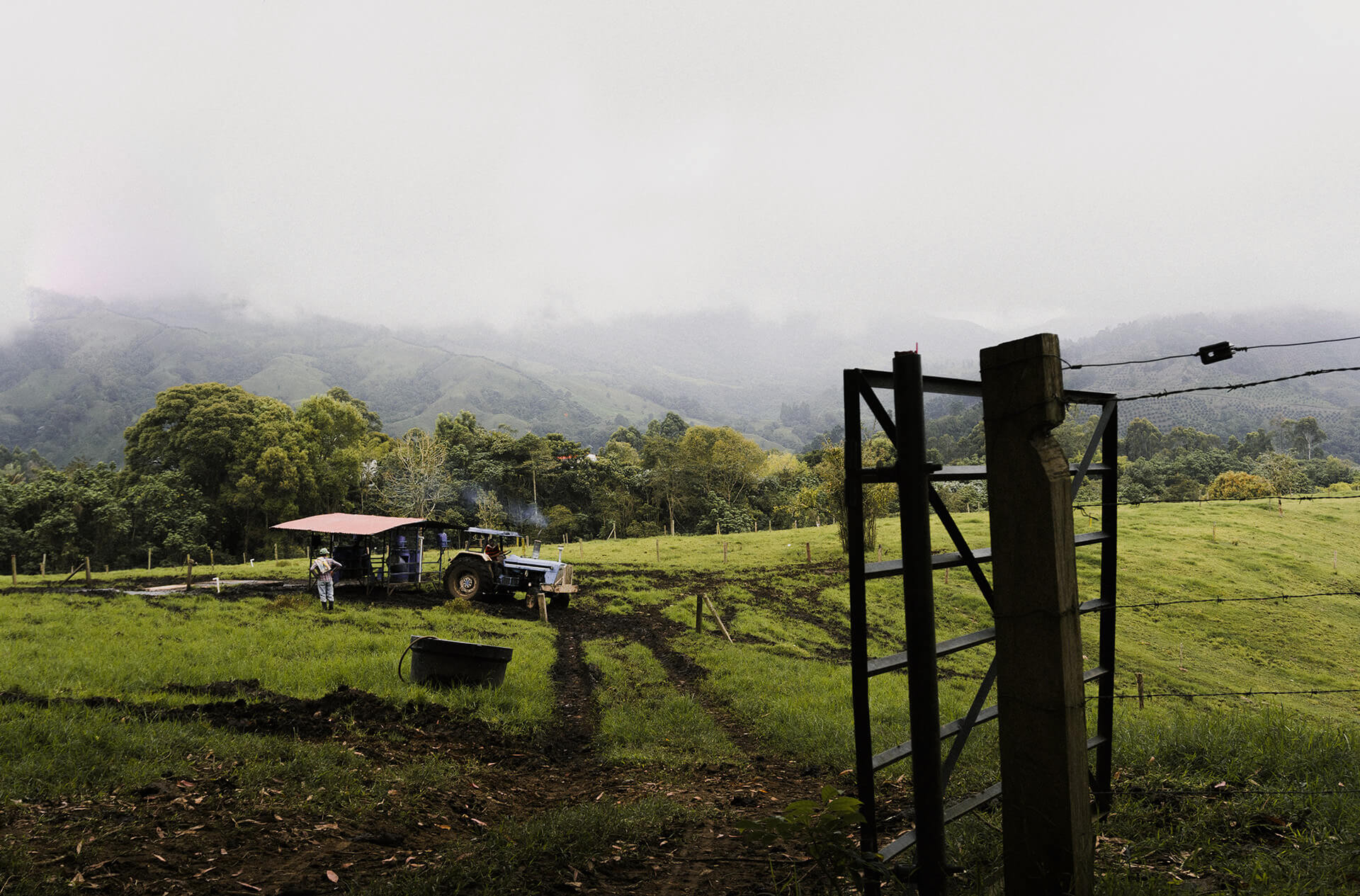
NGO Evaluations

Evaluation for WFP
Best analysis | Best decisions
Sections
More links
Our social networks
© 2022 Econometría Consultores SAS | All rights reserved | Sitemap



